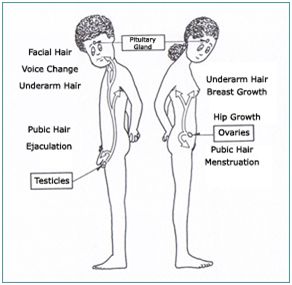
A series of studies has tracked possible genetic influences on when a woman's reproductive lifespan begins and ends.
Chunyan He of the Harvard School of Public Health and her colleagues scanned the genomes of more than 17,000 women, looking for genetic sequences associated with age at menarche — the start of the first menstrual cycle. They found a series of genetic markers associated with the onset of sexual maturity, including several clustered in and near a gene called LIN28B, and additional markers associated with the timing of menopause.
Another project, by Patrick Sulem and Kari Stefansson of deCODE Genetics in Reykjavik and their collaborators, also found a link between LIN28B and the onset of puberty. Meanwhile, a third study from Ken Ong and Ruth Loos of Addenbrooke's Hospital in Cambridge, UK, and their colleagues reports a particular form of the gene that is associated with earlier menarche and breast development in girls, and earlier voice-breaking in boys.
Nature Genet. 41, 724–728 (2009); Nature Genet. 41, 734–738 (2009); Nature Genet. 41, 729–733 (2009)
